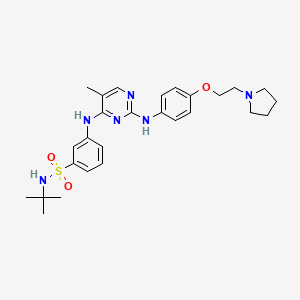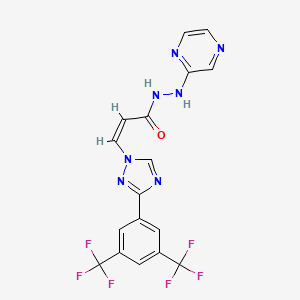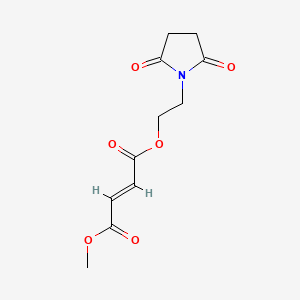ntellipharmaceutics International Inc. (NASDAQ: IPCI, TSX: IPCI) ("Intellipharmaceutics" or the "Company"), a pharmaceutical company specializing in the research, development and manufacture of novel and generic controlled-release and targeted-release oral solid dosage drugs, announced that it has resubmitted its New Drug Application ("NDA") to the U.S. Food and Drug Administration ("FDA") for its Oxycodone ER product candidate.
The Company's NDA for an abuse-deterrent version of Oxycodone ER was initially accepted for filing by the FDA in February 2017. Intellipharmaceutics resubmitted the NDA in response to a Complete Response Letter ("CRL") received from the FDA, which provided certain recommendations and requests for information. The FDA granted us an extension to February 28, 2019 to resubmit our NDA under section 505(b)(2) of the U.S. Federal Food, Drug and Cosmetic Act and the Company has now met this deadline.
There can be no assurance that Intellipharmaceutics will not be required to conduct further studies for Oxycodone ER, that the FDA will approve any of the Company's requested abuse-deterrent label claims or that the FDA will ultimately approve the NDA for the sale of Oxycodone ER in the U.S. market, or that it will ever be successfully commercialized.
About Intellipharmaceutics
Intellipharmaceutics International Inc. is a pharmaceutical company specializing in the research, development and manufacture of novel and generic controlled-release and targeted-release oral solid dosage drugs. The Company's patented Hypermatrix™ technology is a multidimensional controlled-release drug delivery platform that can be applied to a wide range of existing and new pharmaceuticals. Intellipharmaceutics has developed several drug delivery systems based on this technology platform, with a pipeline of products (some of which have received FDA approval) in various stages of development. The Company has ANDA and NDA 505(b)(2) drug product candidates in its development pipeline. These include the Company's abuse-deterrent oxycodone hydrochloride extended release formulation ("Oxycodone ER") based on its proprietary nPODDDS™ novel Point Of Divergence Drug Delivery System (for which an NDA has been filed with the FDA), and Regabatin™ XR (pregabalin extended-release capsules).
Cautionary Statement Regarding Forward-Looking Information
Certain statements in this document constitute "forward-looking statements" within the meaning of the United States Private Securities Litigation Reform Act of 1995 and/or "forward-looking information" under the Securities Act (Ontario). These statements include, without limitation, statements expressed or implied regarding our expectations regarding our plans, goals and milestones, status of developments or expenditures relating to our business, plans to fund our current activities, and statements concerning our partnering activities, health regulatory submissions, strategy, future operations, future financial position, future sales, revenues and profitability, projected costs and market penetration and risks or uncertainties related to our ability to comply with the Nasdaq and TSX continued listing standards and our ability to develop and implement a plan of compliance with the Nasdaq continued listing standards acceptable to a Nasdaq Panel. In some cases, you can identify forward-looking statements by terminology such as "appear", "unlikely", "target", "may", "will", "should", "expects", "plans", "plans to", "anticipates", "believes", "estimates", "predicts", "confident", "prospects", "potential", "continue", "intends", "look forward", "could", "would", "projected", "goals", "set to", "seeking" or the negative of such terms or other comparable terminology. We made a number of assumptions in the preparation of our forward-looking statements. You should not place undue reliance on our forward-looking statements, which are subject to a multitude of known and unknown risks and uncertainties that could cause actual results, future circumstances or events to differ materially from those stated in or implied by the forward-looking statements. Risks and uncertainties relating to us and our business can be found in the "Risk Factors" section of our latest annual information form, our latest Form 20-F, and our latest Form F-1 and Form F-3 (including any documents forming a part thereof or incorporated by reference therein), as amended, as well as in our reports, public disclosure documents and other filings with the securities commissions and other regulatory bodies in Canada and the U.S., which are available on www.sedar.com and www.sec.gov. The forward-looking statements reflect our current views with respect to future events and are based on what we believe are reasonable assumptions as of the date of this document and we disclaim any intention and have no obligation or responsibility, except as required by law, to update or revise any forward-looking statements, whether as a result of new information, future events or otherwise.
https://www.drugbank.ca/drugs/DB00497










